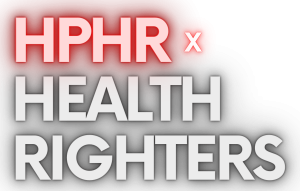
Tsechu Dolma spent the first half of her life as a stateless Tibetan refugee in Nepal moving from one refugee camp to another. At eleven, Tsechu fled the civil war in Nepal and sought political asylum in Queens, New York. She went on to receive a Bachelors in Environmental Science and Master’s in Public Administration degree from Columbia University.
Leveraging her education and experience, Tsechu returned to the refugee camps she left behind to make deep investments in small-scale, practical solutions to developmental challenges. She founded Mountain Resiliency Project, a social enterprise dedicated to building resilient refugee communities through women’s agribusiness. With 15,000 farmers, its proven track record has been recognized by the Asia Society Young Leaders, Forbes 30 under 30 in social entrepreneurship and Brower Youth Award. Prior to this, she worked as a natural resource management consultant for UNDP in Latin America and SIDS climate change strategist for the Timor-Leste Ministry of Commerce, Industry and Environment. Tsechu is a Fulbright Hillary Clinton Public Policy Fellow, Udall Scholar, Wild Gift Fellow and Echoing Green Fellow.
Tsechu is pursuing an MBA to broaden her abilities to advocate for and strengthen displaced communities. She believes social entrepreneurship is the tool to address inequities, development gaps, and improve livelihoods. She is a beekeeper, climber and farmer. When she is not in the mountains, you can find Tsechu buried in her books.
This blog originally appeared on HPHRxHealth Righters.org, an online collaboration of the Harvard Public Health Review, of the Harvard T.H. Chan School of Public Health, and Health Righters.
Health Righters is a multidisciplinary publication exploring the intersection of healthcare and human rights, led in part by Harvard College.
BCPHR.org was designed by ComputerAlly.com.
Visit BCPHR‘s publisher, the Boston Congress of Public Health (BCPH).
Email [email protected] for more information.
Click below to make a tax-deductible donation supporting the educational initiatives of the Boston Congress of Public Health, publisher of BCPHR.![]()
© 2025-2026 Boston Congress of Public Health (BCPHR): An Academic, Peer-Reviewed Journal
All Boston Congress of Public Health (BCPH) branding and content, including logos, program and award names, and materials, are the property of BCPH and trademarked as such. BCPHR articles are published under Open Access license CC BY. All BCPHR branding falls under BCPH.
Use of BCPH content requires explicit, written permission.